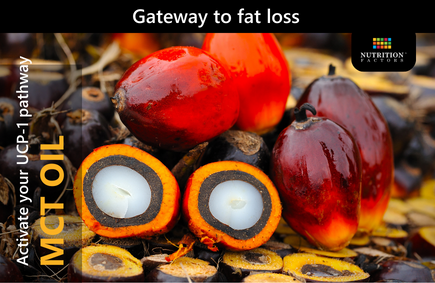Medium Chain Triglyceride (MCT) oil has emerged as a versatile and powerful ally in the quest for effective weight loss tools. Derived from coconut and palm oil, MCT oil offers many benefits, from accelerating fat loss to boosting energy levels.
Understanding MCT Oil
MCT oil, short for Medium Chain Triglycerides, is a flavorless dietary supplement in solid and liquid forms. Its versatility allows for easy incorporation into various culinary delights, including salad dressings, soups, candies, and other products.
Instant Ketone Conversion and Weight Loss
One of the standout features of MCT oil is its ability to be quickly converted into ketones, providing the body with a rapid and efficient energy source. This process is especially beneficial for individuals following a ketogenic diet, where the primary energy source shifts from carbohydrates to fats. Ketones can impact the uncoupling protein 1 (UCP-1) pathway, particularly in the context of brown adipose tissue (BAT) and thermogenesis. UCP-1 is a mitochondrial protein found in brown adipocytes (brown fat cells) that regulates energy expenditure and thermogenesis.
When activated, UCP-1 allows protons to leak back into the mitochondrial matrix, disrupting the coupling of oxidative phosphorylation and ATP synthesis. This uncoupling process generates heat, a key mechanism for non-shivering thermogenesis, which helps regulate body temperature. The production of ketones from MCT oil can enhance fat burning, making it an excellent choice for those looking to shed extra pounds—the extra ketones result in uncoupling and wasting of calories.
High Octane Fuel and Appetite Suppression
MCT oil is often called “high octane fuel” due to its quick and efficient conversion into energy. Additionally, it has been shown to suppress appetite, making it a valuable tool in managing caloric intake.
Banishing Belly Fat
A compelling Italian study discovered that individuals using MCT oil experienced a notable increase in calorie burning up to six hours after ingestion. This accelerated metabolism, combined with the quick breakdown of MCT oil, contributed to the effective reduction of belly fat. MCT oil participants saw more weight loss around the midsection than those who did not include it in their regimen.
Dosage and Choosing the Right MCT Oil
MCT oil is typically consumed in dosages of 2 to 3 tablespoons for optimal benefits. However, it’s crucial to choose the correct form of MCT oil. The most beneficial forms are typically those rich in caprylic acid (C8) and capric acid (C10), as they are readily converted into ketones.
A Word of Caution
While MCT oil offers numerous advantages, excessive intake, especially of the wrong type, may lead to digestive discomfort. Some individuals may experience diarrhea or stomach upset, commonly known as the “MCT oil rush.” To avoid this, start with small doses and gradually increase intake, allowing the body to adapt
MCT oil comes from the following sources
Coconut Oil:
- Coconut oil is a rich source of MCTs, with an exceptionally high concentration of two key MCTs: caprylic acid (C8) and capric acid (C10). These MCTs are readily absorbed and metabolized in the liver, contributing to the quick conversion of MCTs into ketones for energy.
Palm Oil:
- Palm oil is another source of MCTs, although the MCT content in palm oil is lower than in coconut oil. The specific MCTs in palm oil are similar to those in coconut oil, including caprylic acid (C8) and capric acid (C10).
If you need help incorporating MCT oil into your diet for weight loss. Join our weight loss program at nutritionfactors.com
https://www.ncbi.nlm.nih.gov/pmc/articles/PMC5805166/
https://www.ncbi.nlm.nih.gov/pmc/articles/PMC5805166/
https://www.sciencedirect.com/science/article/abs/pii/S1388198119302331
https://www.ncbi.nlm.nih.gov/pmc/articles/PMC4171663/




